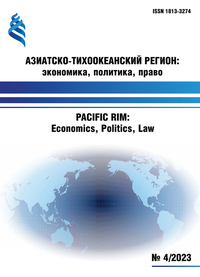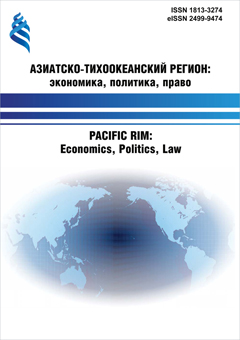MODERN TRENDS IN THE DEVELOPMENT OF TECHNOLOGY TRANSFER (THE ENERGY CASE)
DOI:
https://doi.org/10.24866/1813-3274/2023-4/34-48Keywords:
technology transfer, innovation, import, export, Russia, China, energy, nuclear energy, technology park, sanctionsAbstract
The 20th century is the century of discoveries and new technologies. The following 21st century is characterized by the development of the economy due to the growth of investment in technology and the development of international technology transfer, i.e. technology exchange. The growth of knowledge is limited by the objective limitations of the existing means of research and experimentation, and is also limited by the financial budget. The COVID-19 pandemic has contributed to the improvement of business processes and the environment through innovation, the development of e-retail and high-tech products. The study determined that the United States is the leader in R&D spending, followed by other developed countries (Germany, South Korea, Japan), while China ranks first in terms of the number of patents and the level of innovation. Russia ranks 7th in the world in terms of the number of registered and protected inventions, and R&D spending is less than 1% of GDP in 2021. A study of nuclear industry projects led to the conclusion that it is not very susceptible to sanctions. Rosatom State Corporation cooperates with both Asian and European countries. At the same time, one can single out a trend towards a decrease in sales of technologies in embodied form due to sanctions rhetoric for other sectors of the extractive industry in Russia. An important constraint is the young legislation in the field of innovation. Against the backdrop of insufficient state support for the scientific sphere and sanctions pressure, market mechanisms do not ensure the strengthening of cooperation between Russia and other countries. For Russia, it is important to exchange developments between participants in the local market, with colleagues, at least in the industry. It is not advisable to expect the exchange of technologies with Chinese, Indian and other partners who are guided by TT with Western countries; active measures are needed to promote public-private partnerships, create conditions for “cultivation” and commercialization of domestic developments in technology parks and other clusters.



